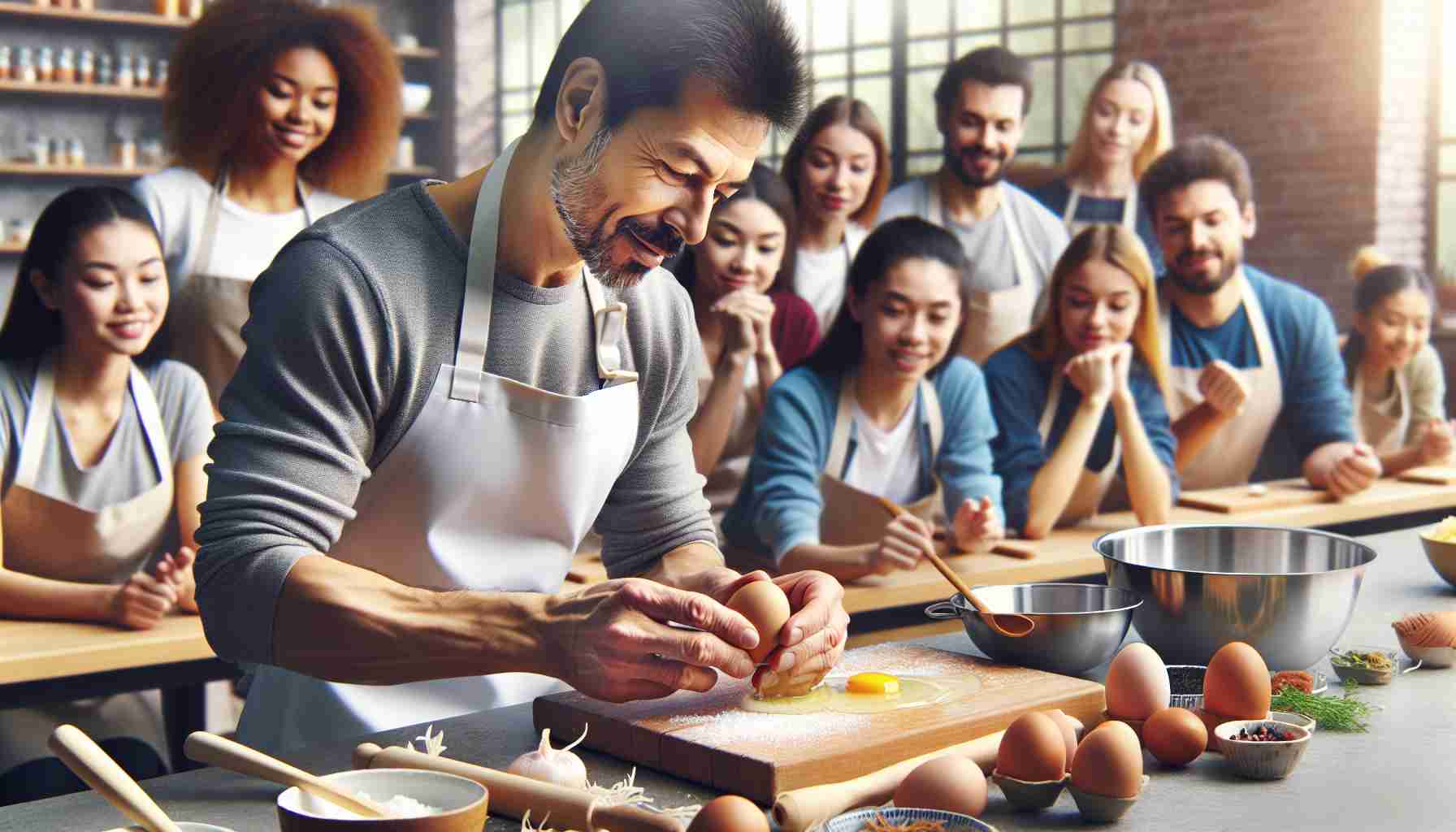
Japanese Cooking Classes: An Egg-citing Culinary Experience
Embark on a Culinary Adventure
Experience the art of Japanese cooking with our exciting new cooking classes. Learn to create delicious dishes that showcase the unique flavors and techniques of Japanese cuisine.
Discover the Versatility of Eggs
In these classes, you will master the art of preparing and cooking eggs in various ways. From traditional Japanese omelettes to fluffy soufflés, you will learn how to harness the versatility of this humble ingredient.
Unlock New Flavors and Techniques
Our experienced instructors will guide you through each step, sharing their knowledge and expertise to help you elevate your cooking skills. Discover new flavors, techniques, and ingredients that will impress your family and friends.
Experience the Joy of Japanese Cuisine
Immerse yourself in the world of Japanese cooking and discover the joy of preparing authentic dishes in your own kitchen. Whether you are a beginner or a seasoned cook, our classes offer something for everyone.
Book Your Culinary Experience Today
Don’t miss this opportunity to explore the rich culinary traditions of Japan. Sign up for our Japanese cooking classes and embark on a delicious adventure that will leave you inspired and satisfied.
Enhance Your Culinary Journey with Japanese Cooking Classes
Are you ready to delve deeper into the intricate world of Japanese cuisine? Our cooking classes offer a unique opportunity to not only learn how to cook delicious Japanese dishes but also explore the rich cultural heritage behind the culinary art. Let’s uncover some intriguing facts and challenges that are associated with the egg-citing experience of Japanese cooking classes.
What are the different types of traditional Japanese omelettes?
Apart from the well-known Tamagoyaki, there are other regional variations of Japanese omelettes that showcase different cooking techniques and flavor profiles. For example, the Okonomiyaki, a savory pancake with fillings like cabbage and meat, offers a different take on the classic omelette. Exploring these variations can add a diverse range of flavors to your culinary repertoire.
Key Challenge: Achieving the perfect texture and rolling technique when making Tamagoyaki can be a daunting task for beginners. It requires practice and precision to create that signature layered appearance and silky texture.
What are the health benefits of incorporating eggs into Japanese cuisine?
Eggs are not only a versatile ingredient in Japanese cooking but also a nutritious one. They are a good source of protein, essential vitamins, and minerals. When used in moderation, eggs can enhance the nutritional value of dishes while adding a rich and creamy texture.
Key Controversy: While eggs are a staple in Japanese cuisine, there is an ongoing debate about the cholesterol content and its impact on health. Some argue that moderate egg consumption can be part of a balanced diet, while others suggest limiting intake due to cholesterol concerns.
Advantages of Japanese Cooking Classes:
1. Hands-on Experience: You get the opportunity to learn and practice traditional Japanese cooking techniques under the guidance of experienced instructors.
2. Cultural Immersion: Explore the cultural significance of Japanese ingredients and customs, adding depth to your culinary knowledge.
3. Expand Your Palate: Discover new flavors and ingredients that are unique to Japanese cuisine, broadening your culinary horizons.
Disadvantages of Japanese Cooking Classes:
1. Cost: Participating in cooking classes can be expensive, especially if they involve specialized ingredients and equipment.
2. Time Commitment: Balancing work and personal schedules to attend classes regularly can be challenging for some individuals.
3. Language Barrier: In some cases, language barriers may hinder full comprehension of instructions and techniques, especially in traditional Japanese cooking classes.
Ready to embark on a flavorful journey through the world of Japanese cooking? Sign up for our classes today and unlock the secrets of this captivating culinary tradition.
For more information, visit JapaneseCookingClasses.com.

















